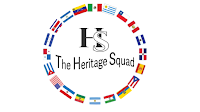Lately, the news all around has brought to light the fact that many Latinos as early as the first generation born in the USA, or who came before fully developing their Spanish language skills, have lost their heritage language, that is they cannot fully communicate in Spanish. The reasons for this phenomenon are myriad, yet mostly they have to do with parents' fear of discrimination if their children don’t speak English without an accent or even if they are bilingual English/Spanish speakers.
Unfortunately, these fears are not without basis. There are records evidencing how English language learners, mostly Spanish speakers, have been misidentified in schools all over the country because of language concerns. In some cases they have been assigned to receive special education, and in others they are still ignored for receiving services to address their learning needs. Some teachers have gone as far as to “anglicize” children’s names in an effort to rush assimilation without considering how that may affect children’s sense of self- worth. Others have, without true knowledge in the matter, recommended parents to stop using their mother tongue because it might “interfere” with their children’s English language acquisition. The insensible “English only” effect, applied mostly toward Spanish speakers, has not seen the same impact to speakers of other languages thus, cementing the false notion that Spanish lacks linguistic value.Recently, the rise of movements to rescue the language and cultural heritage of Latinos, Hispanics, or Hispanix as they are sometimes identified, seems to have started shedding some light on the issue and with it expanding conscience that in order to be part of the American society, there’s not need to renounce to such an important part of our culture such as our mother tongue. Across the country, there are movements such as Español sin Pena, No Sabo, and most recently The Heritage Squad whose objective is to support and inspire Spanish speakers in reclaiming their language, deepen their knowledge and expand their pride in their respective cultures.The Heritage Squad, made up of a number of professionals most of them with renowned trajectory in the educational realm - from elementary to college/university levels- also seeks to support other professionals (specially teachers) working with bilinguals or Spanish speakers.
The endeavor of teachers supporting English language learners; specifically Spanish speakers also face the challenge to uphold the cultural values of a population that has traditionally faced double drawbacks like surviving in a society that disparages their language; simultaneously facing the rejection from their own because they are not fluent Spanish speakers.
If the tide is to turn, it must be done within a place of support and respect. As a society it’s important to stop clinging to monolingualism in the erroneous misconception that it will make a more homogeneous society. On the contrary, promoting bilingualism/ multilingualism ought to be seen as the path for building the bridge toward multiculturalism where the presence and participation of diverse linguistic, cultural and ethnic groups are equally valued.
Divesting people from their language and their cultural identities does not consolidate the greatness of America; rather it deepens wounds, widens gaps and severs the basic tenets of a nation created under the premises that all human being possess unalienable rights, and that among these are Life, Liberty and the pursuit of Happiness.
Hispanics are one of the three fastest-growing populations in America; Spanish is not only our heritage language but the unwavering liaison to our cultural dignity. Can we then dream that there is a light at the end of the tunnel where the Spanish language is spoken “sin pena” -without shame- and the values of our cultural backgrounds are accepted and celebrated beyond some dates in the calendar? Let’s hope so!
.jpg)


.jpg)